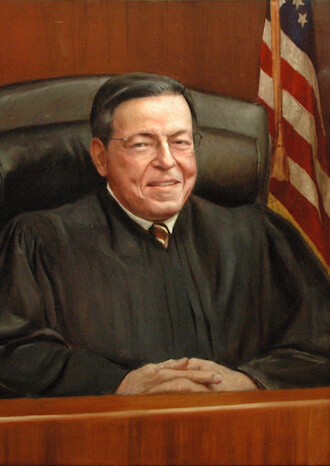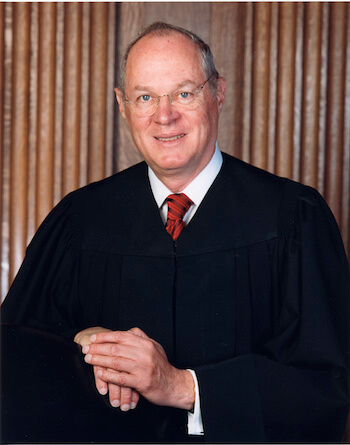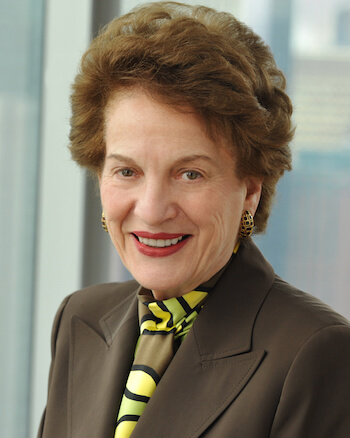Joseph Vitale and Robert Talmas, with their son Cooper, during the June 28 LGBT Pride March. | DONNA ACETO
BY PAUL SCHINDLER | Appearing on MSNBC shortly after the Supreme Court handed down its historic June 26 marriage equality ruling, Manhattanite Robert Talmas said, “It’s a whale of a decision and a day, and we’re overjoyed.”
Then, referring to his husband, Joseph Vitale, and the son they adopted in Ohio two years ago, Talmas added, “We can be a normal family and give Cooper all the protections that he deserves.”
Vitale chimed in, “Cooper will never know inequality.”
Talmas and Vitale were celebrating not just a win for the LGBT community, but one in which they had a deeply personal stake. They were one of the 14 same-sex couples — along with two gay men whose husbands were deceased — who made up the victorious plaintiffs before the Supreme Court.
Manhattan dads joined the historic case so they could protect the rights of their two-year-old Ohio-born son
The events that led two New Yorkers to be part of a case involving gay and lesbian couples in Ohio, Michigan, Tennessee, and Kentucky wishing either to marry or to have their out-of-state marriages recognized began 17 months ago. It was then that Talmas and Vitale learned that despite having finalized their adoption of Cooper, who was born in Cincinnati, in New York State, Ohio officials would not honor the directive from the Manhattan Family Court that they issue a birth certificate naming both fathers as Cooper’s parents.
That news came as a shock, particularly given the smooth sailing the two dads had so far experienced in Ohio. They had traveled to Cincinnati nine months earlier, after having agreed, with the assistance of an adoption agency, to adopt Cooper at birth. Originally, the plan was for them not to meet the birth mother — at her request — but at the last minute she asked to see them. Talmas and Vitale were apprehensive about visiting her in the Catholic hospital where she gave birth, but officials there welcomed the men, giving them a room close to Cooper’s birth mother for the required three-day waiting period.
“They couldn’t do enough for us,” Talmas recalled.
After Cooper was born, Ohio officials released him in his fathers’ care and the family returned to New York to formalize the adoption. Only when that process was complete did Talmas and Vitale learn that anti-gay politics in Ohio would stymie their effort to get the birth certificate Cooper needed to show his two fathers.
In January 2011, the state’s newly elected Republican governor and attorney general, John Kasich and Mike DeWine, respectively, ordered the State Department of Health to overturn existing policy that would have allowed Vitale and Talmas to obtain the birth certificate they sought. Kasich and DeWine took the position that Ohio’s ban on same-sex marriage and recognition of such marriages from out of state prevented the issuance of a birth certificate naming them as Cooper’s legal parents.
The dads found themselves in an absurd political jam.
“The real hook was when they said they were not recognizing our marriage,” Talmas said. “But this wasn’t a gay marriage case. This was about recognizing a New York adoption order.”
Politics and legalities, however, were not what hit the couple hardest.
“We wanted a document that reflects who our child’s parents are,” Vitale said.
“I appreciate the arguments about our civil rights, but it’s really about Cooper’s civil rights,” said Talmas, who himself was adopted. “The State of Ohio was not taking care of — to me — one of their children, a child who was born there.”
The adoption agency they worked with immediately recognized that Ohio’s post-2011 policy on birth certificates for adoptive parents posed significant risks for prospective same-sex couple clients, and steered Vitale and Talmas to ongoing litigation challenging Ohio’s refusal to recognize same-sex marriages from other jurisdictions. Their situation added additional fire to the plaintiffs’ case, since they posed the additional question of whether Ohio could, despite the Constitution’s Full Faith and Credit Clause, also refuse to honor an adoption decree from New York.
Joining the legal challenge, Talmas and Vitale soon became avid courtroom spectators, sitting through arguments before District Court Judge Timothy S. Black, who ruled in their favor last April; before the Sixth Circuit Court of Appeals, which overturned Black’s ruling in November; and before the Supreme Court in the case — consolidating appeals from plaintiffs in all four Sixth Circuit states — that decided the marriage equality issue nationwide.
Despite having become courtroom veterans, the couple was little prepared for the experience of sitting through the Supreme Court arguments in Obergefell v. Hodges on April 28.
“It was electrifying,” Vitale told Gay City News on that day. “You imagine this and imagine that. It’s 50 to 60 times that. It’s an out of body experience. It’s very, very weird.”
Asked if there were emotional high points in the day, he responded, “The entire thing was. Everything struck a chord.” Then, referring to one justice who was a very clear ally on the bench, Vitale added, “It was very emotional to hear Justice [Ruth Bader] Ginsburg speak.”
With his dads plaintiffs — and winners — in federal litigation that took them all the way to the Supreme Court, Cooper, not yet two-and-a-half years old, has become something of a celebrity. He appeared on an MSNBC report earlier this year —a video clip Vitale said the youngster insists on watching over and over again — and he was on the dais at the June 26 victory rally outside the Stonewall and braved occasional drizzle two days later to ride down Fifth Avenue with his dads in a convertible for the LGBT Pride March.
And there is something fitting about Cooper’s high profile. When opponents of marriage equality argued that limiting marriage to unions of one man and one woman was essential to protecting the best interests of children raised by them, their position was fatally flawed in failing to account for the needs of the roughly two million children being raised by same-sex couples. In opinion after opinion as marriage equality carried the day in federal courts across the nation in the past 18 months, the best interests of such children — the Coopers of America — figured large in the judges’ analysis.
Not seeking recognition of their own marriage but rather the rights of Cooper, Talmas and Vitale always had their eyes on that point. Summing up what was most meaningful about listening to the nine Supreme Court justices weigh in during the April 28 arguments, Vitale, with no small amount of wonder, said, “They’re talking about your kid.”



































